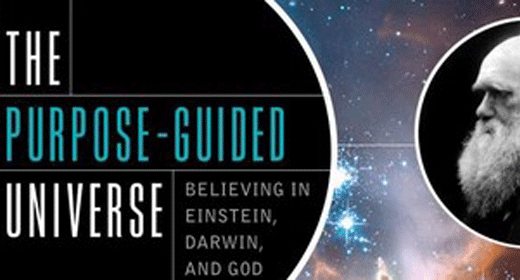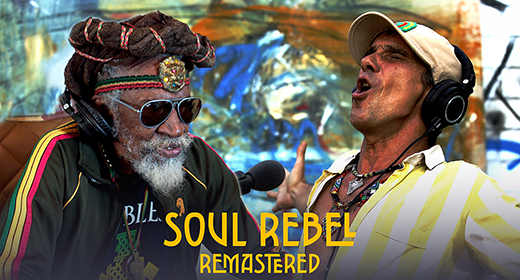by Sarah Regan: You’ve probably heard talk of spiritual awakenings and how they can lead to more enlightened (dare we say, “woke”) people…
But what does a spiritual awakening really mean, and what does it actually entail? To answer these questions and more, we asked the experts. Don’t worry; we got the scoop on how to begin yours, too.
What is a spiritual awakening?
The notion of the spiritual awakening has been around for centuries and can be observed in a variety of cultures and religions around the world. Call it “nirvana”; call it “enlightenment“; call it “bliss”; a spiritual awakening begins the moment a person can step back and “awake” to their life with a new sense of being in this world.
Spiritual awakenings can be mildly unnerving at first, as they often cause us to grapple with questions like, Who am I, and why am I here? But there can also be a certain element of wonder and excitement when we find ourselves suddenly feeling very much alive.
The idea of the spiritual awakening was popularized in the Western world by famed psychiatrist Carl Jung (who described the process as coming back to the original Self), but the experience of rising to a higher state of consciousness has always been an intrinsic part of what it means to be human.
What causes a spiritual awakening?
A spiritual awakening can be triggered by anything, from the completely mundane to the completely life-altering.
According to spiritual author Shannon Kaiser, a few common causes include life-changing events (i.e., losing your job, moving away from home, a car accident, etc.) and people who open a spiritual “door” for you (like a twin flame or soul mate).
“Spiritual awakenings can be spontaneous,” she says, “but for most, they are triggered by major life changes or traumas such as life-threatening illnesses, car accidents, divorces, war, pandemics, quarter-life or midlife crises, mental health crises such as clinical depression or anxiety, or even a near-death experience.”
As professional intuitive and the author of Angel Intuition, Tanya Carroll Richardson explains, ultimately, anything that encourages (or forces) you to “look at your life from a more spiritual perspective” can set you on a path toward awakening.
21 signs and symptoms of a spiritual awakening.
Here are some signs that you’re going through a spiritual awakening or are about to embark on one:
1. You feel disconnected or detached.
At first, the spiritual awakening process can feel overwhelming and confusing. It can feel like everything you thought to be true about your life was a lie, and as such, Kaiser explains, you may feel “disconnected and detached from the things and people you used to enjoy.”
2. You’ve reevaluated your beliefs.
Richardson notes a spiritual awakening will likely cause you to revise your spiritual beliefs or adopt significant new ones. Whether that means connecting deeply with a new religion or belief or quitting your job to pursue your real passion, your priorities are likely different now.
3. Your dreams are more vivid.
Not only is your waking life more vivid as a result of a spiritual awakening, but your dream life may become more vivid too, Kaiser says. The meanings of your dreams and how they connect to your journey may become more apparent as well.
4. You experience more synchronicities and déjà vu.
If you’re frequently experiencing mind-blowing synchronicities, like thinking about someone and randomly running into them the next day, or seeing angel numbers all the time, that’s a sign you’re on your spiritual path, Kaiser says. Similarly, feelings of déjà vu aren’t uncommon either.
5. Your relationships begin to shift.
There can be no doubt: Spiritual awakenings are transformative, and the people in your life won’t always be able to appreciate that. “You may feel like your loved ones don’t understand you anymore because you are changing,” Kaiser notes. Richardson suggests asking loved ones to respect what you’re going through, reminding them that they don’t have to resonate with your awakening.
6. You feel spirituality becoming an important part of your life.
As Richardson notes, it will be hard to ignore the call from your spiritual side as you go through this process. The desire to find meaning and fulfillment within your spirituality will likely become one of your biggest priorities.
7. You’re more intuitive.
Another sign, according to Richardson, is having newly heightened intuition or new intuitive abilities showing up. They were always there, buried beneath the layers of your ego, and now that you’ve awakened, you feel much more in tune with yourself.
8. You can sense inauthenticity and manipulation.
In addition to that heightened intuition, Kaiser says you’ll be able to sense any inauthentic or manipulative behavior when someone is deceiving you, as well. “Things that are out of integrity are hard to be around,” she adds.
9. You realize everyone is on their own path.
As you figure out your own spiritual path, Richardson notes, you also become more accepting of the idea that everyone else is on their own unique path, too. Things like winning arguments or convincing people of your views don’t matter as much anymore.
10. You want to be of service.
As you begin “realizing that every living thing is inherently worthy and equal,” Richardson says, you will feel called to be of service, whether to people, to animals, or to the environment. It’s important to you that you have a cause you can get behind to make your life feel purposeful. It may not be about changing your current roles or jobs, Richardson adds, but just approaching what you’re already doing with a deeper sense of service.
11. Your teachers find you.
According to Kaiser, during an awakening, your spiritual teachers may “appear everywhere with perfect timing to help you.” These don’t have to be literal teachers: They might be a kind stranger in the store, a new friend you met by chance, or a literal spiritual or religious figure.
12. You feel alone.
Spiritual awakenings are no easy undertaking, and while there’s hope for enlightenment on the other side, it can feel very lonely, as Kaiser explains. It’s isolating to have your whole life flipped upside down, especially if the other people in your life aren’t quite on the same wave.
13. You feel more connected to the natural world.
While you may feel less connected to your friends at family at first, you will feel more connected to nature, Kaiser and Richardson agree. From plants to animals to the world as a whole, you will sense your interconnectedness to it all, and it may be quite moving.
14. Your senses are heightened.
According to both Richardson and Kaiser, senses will often become heightened during spiritual awakenings, as you become more tuned in to the present moment. This includes sensitivity to physical, emotional, and/or energetic stimuli.
15. You may have more bodily sensations.
Along with heightened awareness and senses, Kaiser adds you may have other bodily sensations too. Sleep disturbances are not uncommon.
16. You may have physical symptoms.
A number of physical symptoms can accompany spiritual awakenings too, Kaiser says, like fatigue and brain fog. (Though of course, these symptoms could also be a sign of a medical condition, so don’t necessarily write them off as nothing.)
17. There’s a sudden change in your habits and routine.
As your spiritual life begins to transform, so will your day-to-day life, including habits and routines, Kaiser notes. Perhaps now you make it a priority to spend time in nature or meditate, or you’ve ditched old habits that were no longer serving you.
18. Your outlook on the world feels different.
Again, spiritual awakenings aren’t easy, and the alienation and ego-shattering realizations that occur can make anyone feel like they are living in a new reality.
19. Increased empathy.
According to Richardson, as you begin feeling more connected to the world around you, you’ll also have increased empathy regarding the suffering of others. The prevalence of suffering may feel impossible to ignore, hence why you now feel more called to be of service.
20. You display more compassion.
On top of feeling more empathetic, Richardson says those going through spiritual awakenings likely “feel more compassionate toward others—while still wanting to hold them accountable.”
21. You have a newfound curiosity.
And lastly, now that you’ve “awakened” to your life, you probably have a childlike wonder and curiosity for the world around you, even when things get tough. “Being able to stay curious about your life and the people in it, even when you’re feeling emotional,” Richardson notes, is a sign of a spiritual awakening.
The process and stages of awakening.
You could say the actual “spiritual awakening” is just the first step on the long path to enlightenment. Indeed, the initial awakening may happen in just a moment, but the process has many stages, which are as follows:
1. The spiritual awakening.
As Kaiser explains, this is the beginning of your spiritual journey, as you start to question everything you once knew. You begin to clear certain things out of your life (habits, relationships, old belief systems) and invite new, more enriching things in. You may feel like something is missing, but you haven’t quite figured it out yet. During this phase, it’s common to feel lost, confused, and down.
2. The dark night of the soul.
The second stage of a spiritual awakening is kind of what it sounds like: a very rough patch—the lowest patch, in fact. In many ways, this is when your soul is recalibrating, stripping away all aspects of the ego. It’s very challenging, but once you hit rock bottom, there’s nowhere to go but up—forcing you to make a real change.
3. The sponge.
Once you’ve made it through your dark night of the soul, you’re ready to begin creating your new and improved, “awake” life. In the third phase, it’s all about trying things on for size and exploring, Kaiser says. You begin branching out, trying different hobbies, religions, relationships, etc., as you figure out what meshes with your spirit.
4. The satoru self.
As Kaiser explains, Satori is a Japanese Buddhist term for awakening or “comprehension,” derived from the Japanese verb satoru. In the Zen Buddhist tradition, it refers to kenshō, or “seeing into one’s true nature.” In this phase, you begin to not only recognize, but honor and embody, your true nature through your gifts, skills, and talents.
5. The soul sessions.
Think you’ve reached enlightenment yet? Not quite. The fifth stage, which Kaiser refers to as the “soul sessions,” can take some time. You’re building the actual structure in your life through which your true spirit can thrive. This can take some trial and error and lots of different strategies. During this time (which can take years—even decades—BTW), your soul is growing and healing as you discover the routines and rituals that work for you.
6. The surrender.
The second-to-last step in the awakening process, surrendering is all about releasing any remaining structures, beliefs, or facets of the ego that are keeping you from your truth. By this point, you’ve gotten to know your soul, you’ve figured out a lifestyle that works for you, but there may still be people or habits that hold you back. This is where you will release them so you can fully step into your power.
7. Awareness and service.
And finally, we have awareness and service. Kaiser says this is full awareness of your own divinity in every moment, as you flow through life with grace and clarity. You live in service to others, which brings you great happiness and contentment.
How to make space for a spiritual awakening.
While it may not be easy, many would attest that spiritual awakenings are well worth the effort. So, if you want to make space in your life to start your spiritual journey, Richardson recommends developing daily, weekly, or monthly spiritual practices (like meditation, mindfulness, and gratitude, for example).
In addition to that, “find people you resonate with spiritually that you can talk to,” she suggests. You can look for books or podcasts about spirituality that resonate with you, as well.
“Practice self-love and compassion,” Kaiser notes. “Be gentle with yourself and trust the unfolding; all spiritual awakenings occur to guide us back into balance with our true self.” She adds to also pay attention to your inner guide and intuitive nudges, as “they’re helping you harmonize and remove what no longer is authentic in your life.”
The bottom line.
Spiritual awakenings are complicated, profound, and nothing short of life-changing—in the best way. While they may not be easy, they will improve your life for the better with patience, trial and error, and a bit of time. If you find yourself in one, all there is to do is trust the process, hang on tight, and prepare for a newly awakened life.










































